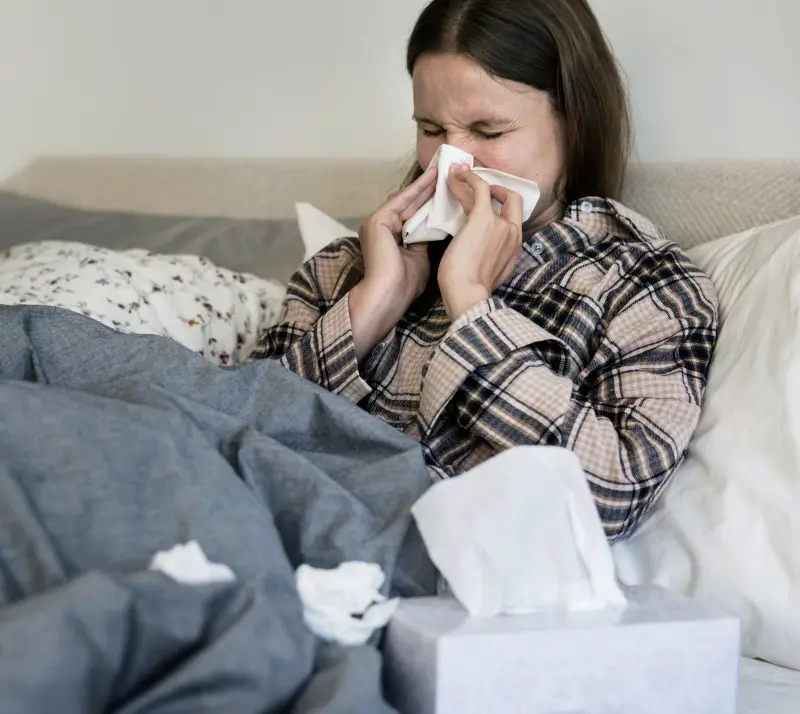
It’s time to take back your sleep from allergies – 12 Things to do
By Jason Wooden, PhD | May 9, 2025
You’re not the only one losing sleep because of allergies
Is there anything more frustrating than lying in bed desperate for sleep while fighting a runny nose, sneezing, and itchy watery eyes?
Or maybe it’s a tickly throat and bouts of coughing…
And you finally drift off to sleep for it to happen again.
If this sounds familiar, you’re in good company as more than 100 million Americans struggle with allergies every year. Worldwide it’s estimated that as many as a third of all adults experience allergies.
An allergy is what happens when your immune system overreacts to something that normally doesn’t bother people.
For seasonal allergies, the body is overreacting to outdoor allergens such as pollen. However, the body can react to other things like dust, mold, pet dander, insect venom, food, and even medications.
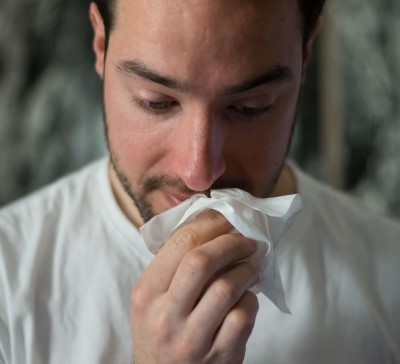
Unfortunately, individuals with allergies are more than twice as likely to struggle with poor sleep.
Which means on any given night there’s likely a ton of allergy sufferers struggling with sleep…
Thankfully, I’ve never had allergies but I do have family members who do. I’ve seen the toll seasonal allergies can take on their sleep.
Sleep is tough enough given the challenges of our modern world which is why allergies are so frustrating at night.
The many ways allergies can wreck your sleep
Did you know allergies are strongly associated with sleep problems? It’s one of the leading causes of sleep disruptions.
For seasonal allergies, the most common type, pollen can irritate the eyes and nasal passages triggering congestion, runny nose, sneezing, itchy and watery eyes, postnasal drip, and coughing.
Ditto cat and dog allergies.
Some Allergy Symptoms :
- Skin rash or hives
- Itchy skin
- Sneezing
- Stuffy or runny nose
- Cough
- Wheezing
- Itchy, watery eyes
- Swelling of your face, lips, tongue or throat
- Difficulty breathing or swallowing
- Vomiting or diarrhea
- Low blood pressure
Source: Cleveland Clinic
With all of that going on, how’s one supposed to sleep?
Besides making it harder to fall asleep and stay asleep, allergies can rob you of the deep restorative sleep needed to wake up feeling refreshed and ready to go.
Allergies can also worsen sleep disorders like restless leg syndrome and sleep apnea leading to even poorer sleep quality. For sleep apnea, as nasal passages swell the upper airway can become narrower increasing the risk for snoring and obstructive sleep apnea.
For obstructive sleep apnea, as nasal passages swell the upper airway can become narrower increasing the risk for snoring and breathing interruptions. Allergies can also make it harder for sleep apnea patients to keep on a CPAP mask needed for treatment.
All the same, that’s why allergies can be so hard on sleep.
Why are my allergies worse at night?
If your symptoms seem to ratchet up at bedtime, you’re not imagining it. Online you’ll find people wondering why this happens like this reddit poster complaining that their hay fever is on steroids at night!
It’s pretty common that when people lay down they get even more congested. Also, sleeping on your back encourages the flow of postnasal drip into the throat which can lead to more spells of coughing.
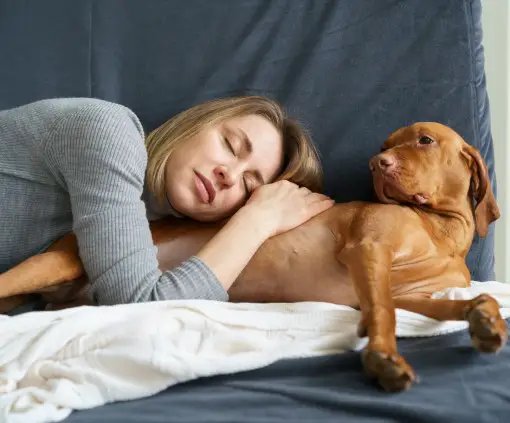
Also, symptoms can also worsen at night due to natural circadian rhythms and other allergens besides pollen in the bedroom. The list of suspects includes dust mites, mold, and even household chemicals.
If you have a cat or dog that frequents your bedroom, there’s pet dander to contend with too.
The stakes are WAY higher than you may realize
If seasonal allergies have become an ongoing issue for you sleep, you need to do something about it sooner rather than later. We pay a price when we miss out on sleep.
Besides waking up feeling miserable, sleep deprived people don’t think as clearly, have a harder time coping, and are moodier. They also perform more poorly in school or on the job.
Also, did you know poor sleep can increase your risk for high blood pressure, heart disease, obesity, anxiety, depression, and dementia?
So, the stakes are pretty high for health, wellness, success, and happiness.
Also, be sure in the evening to avoid consuming foods that can trigger anxiety (alcohol, caffeine, added sugar, and refined carbs).
How to take back your sleep from allergies
Okay, maybe in the past you’ve felt you’ve just going to have to live with poor sleep during allergy season. However, the good news is that there are plenty of things you can do:
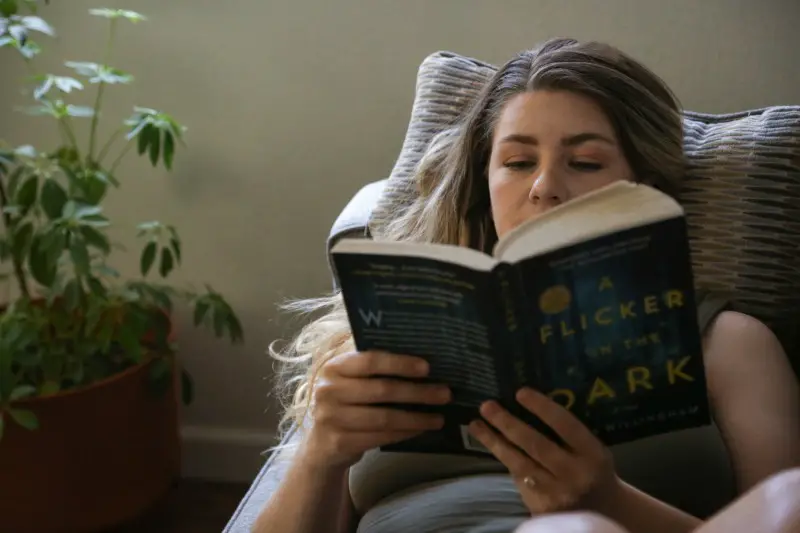
#1
Spend less time outside
A simple way to reduce your exposure to seasonal allergens, especially if you avoid going outside early morning when pollen counts are higher and on windy days.
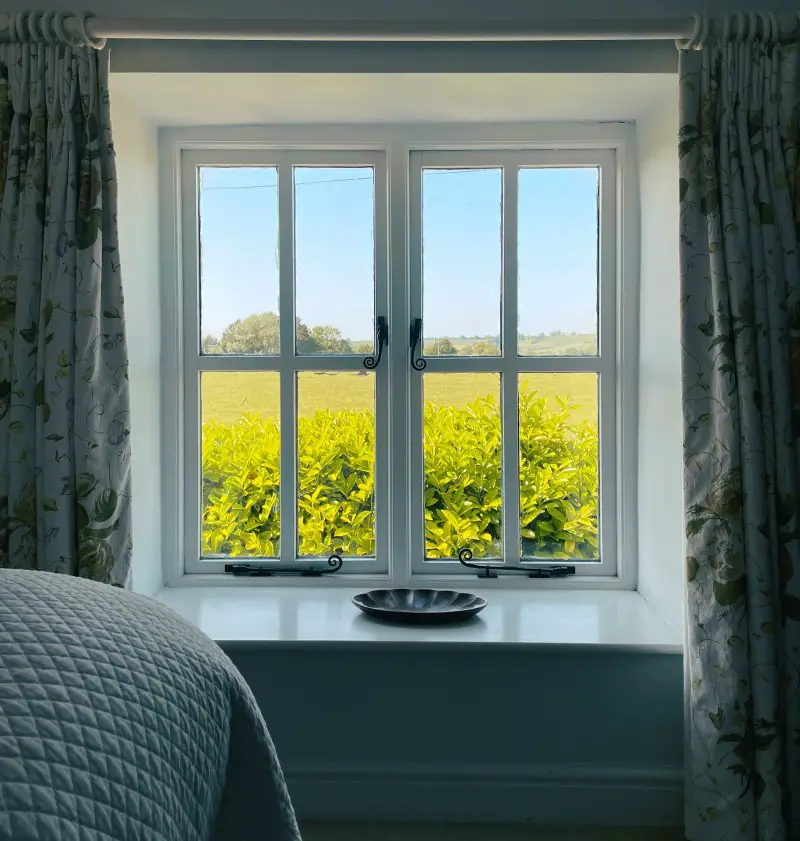
#2
Keep doors and windows closed
Simple enough to do, this can help keep allergens out of the bedroom.
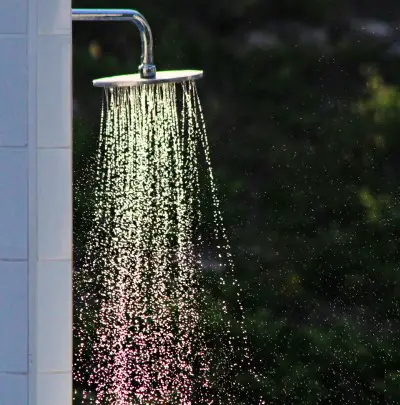
#3
Shower before going to bed
A relaxing way to wash away the pollen, the steam can also help clear out sinuses.
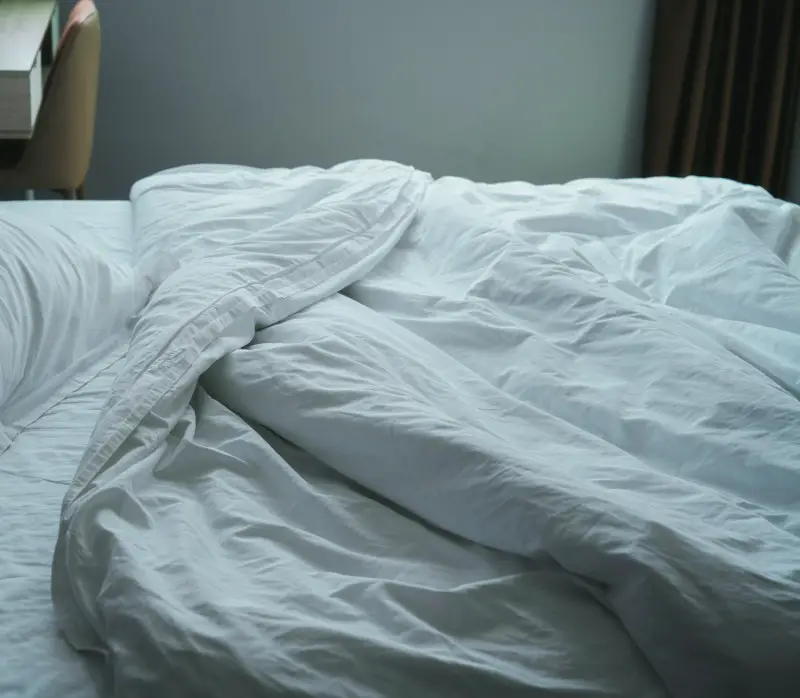
#4
Allergy-resistant bedding
Look for hypoallergenic sheets, blankets, and pillowcases.
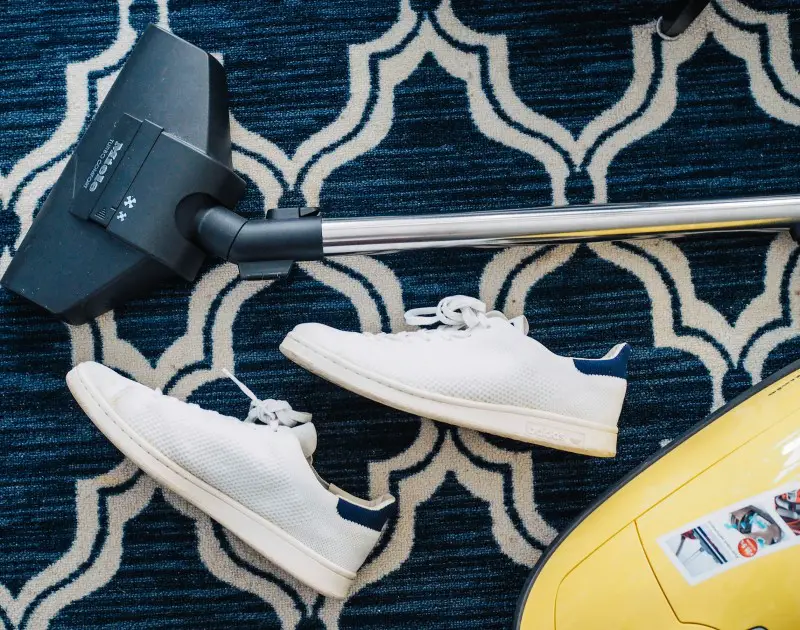
#5
Keep your room clean
Regular cleaning of allergy trapping surfaces such as carpeting, furniture upholstery, and curtains can make a difference. Don’t forget to wash your bedding too.
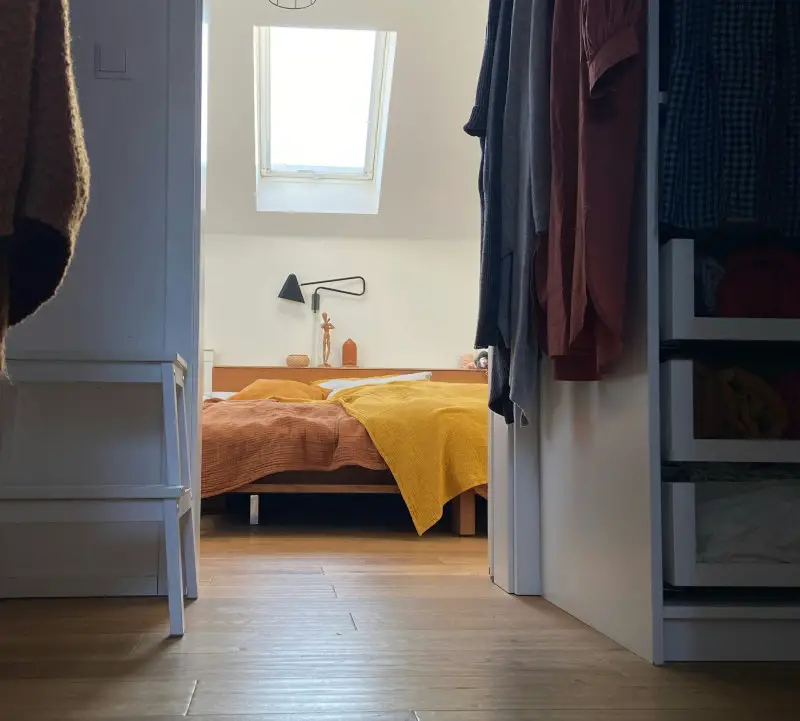
#6
Remove the carpets
Even better, stick to bare surfaces in your bedroom such as a hardwood floor.
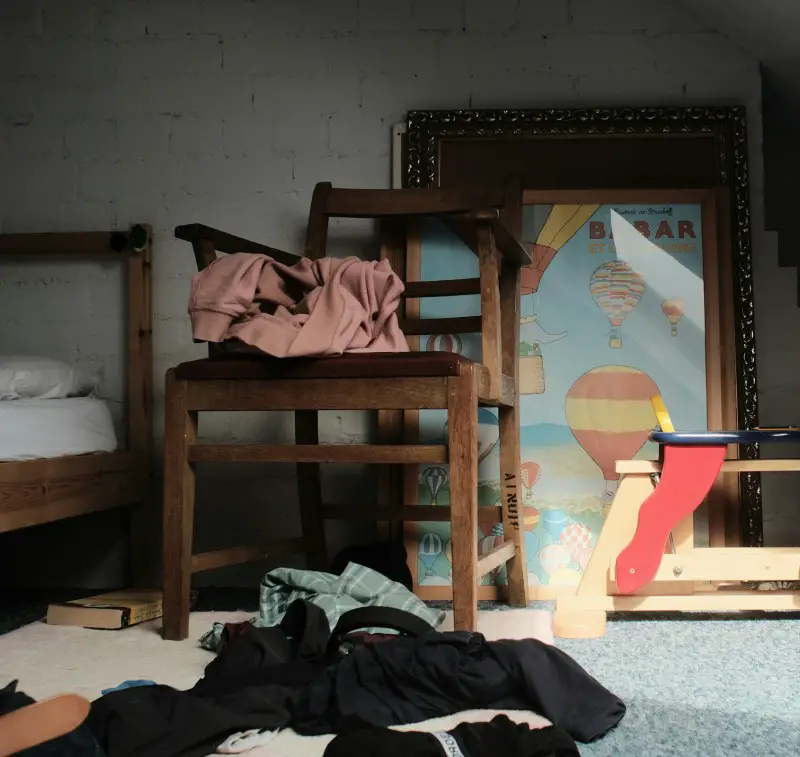
#7
Declutter your bedroom
Besides a tidier room, the allergens will have fewer places to hang out.
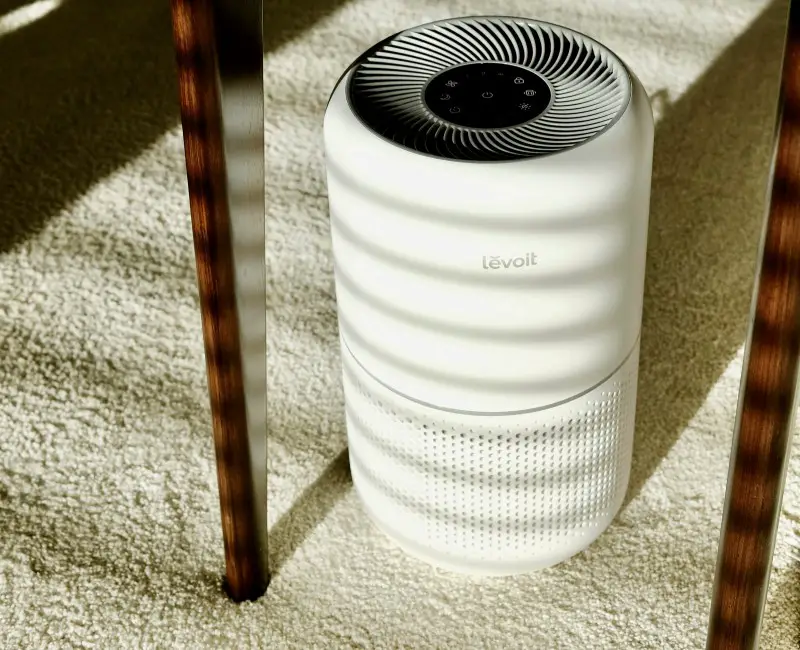
#8
Use an air purifier
A high-tech way to cut down on bedroom allergens, be sure it’s running with a HEPA filter. You may also want to add a certified allergen HVAC filter to your central heating and air conditioning system.

9#
Eliminate as many other allergens as you can
Regular cleaning can help with dust mites and pet dander. You may have to keep your pets out of your bedroom.
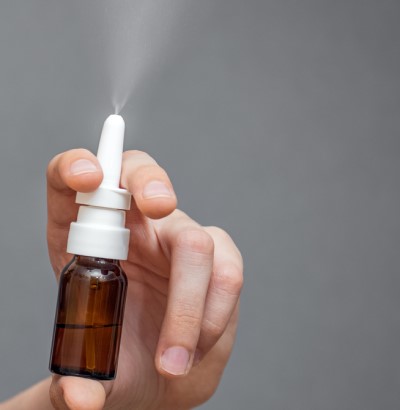
10#
Nasal rinses
Rinsing with salt water can help remove excess mucus from the nose and provide temporary relief.
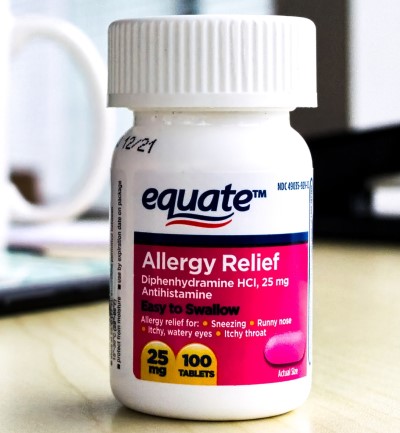
#11
Allergy medications
Your choices include over-the-counter antihistamines, decongestants, and nasal steroid sprays.

#12
See a doctor
A doctor can explore with you stronger medications such as an allergy shot. Also, it’s a good idea to go in if your symptoms are getting worse.
Don’t forget about these things that can make sleep easier…
Speaking of not making things harder than they already, there’s a long list of things besides allergies that can derail your sleep.
In fact, it’s likely that allergies are NOT the only challenge you’re facing at bedtime.
So, be sure you’re following the everyday rules for restful sleep:
- keep consistent wake up and bedtimes
- avoid naps
- daily exercise
- avoid large meals, alcohol, or stimulants such as caffeine before bed
- maintain a regular bedtime routine
- avoid using TVs, laptops, or other electronics before bed
- avoid social media and anything else that can get you wired up before bed
- keep your bedroom dark, cool, quiet, & relaxing
Also, your doctor can check for underlying issues linked to poor sleep. The list includes things like chronic pain, heartburn, cancer, dementia, asthma, and undiagnosed sleep disorders such as sleep apnea.
Sources:
1. “Seasonal Allergies (Allergic Rhinitis)”, Yale Medicine
https://www.yalemedicine.org/conditions/seasonal-allergies
2. “Allergy Facts and Figures”, Asthma and Allergy Foundation of America
https://www.aafa.org/allergy-facts/
3. “1 in 3 adults don’t get enough sleep”, CDC website
https://www.cdc.gov/media/releases/2016/p0215-enough-sleep.html
4. “Allergy”, MedlinePlus
https://medlineplus.gov/allergy.html
5. Allergy-related outcomes and sleep-related disorders in adults: a cross-sectional study based on NHANES 2005–2006. Allergy, Asthma & Clinical Immunology volume 18, Article number: 27 (2022)
https://aacijournal.biomedcentral.com/articles/10.1186/s13223-022-00669-z
6. “Why Do My Allergies Get Worse at Night?”, 2021, MedineNet
https://www.medicinenet.com/why_do_my_allergies_get_worse_at_night/article.htm
7. “Seasonal Allergies and Sleep: Avoid Losing Sleep During Allergy Season”, 2018, Alaska Sleep Clinic
https://www.alaskasleep.com/blog/seasonal-allergies-and-sleep-avoid-losing-sleep-during-allergy-season
Connect with us:
About Us
Better Sleep Simplified® was founded as a place for you to get clear and well-researched information.
Our goal is to make sure you know about your options so that you take action sooner rather than later.
Check us out on YouTube:
Watch and Learn
Helpful sleep tips, interesting sleep facts and statistics you want to know about
Affiliate Disclosure
This site is a participant in the Amazon Services LLC Associates Program and other affiliate advertising programs designed to provide a means for sites to earn advertising fees by advertising and linking to them.
Important: BetterSleepSimplified.com is for informational purposes only and is not intended or implied to be a substitute for professional medical advice, diagnosis, or treatment. Always consult a physician for sleep and health concerns. See additional information.


